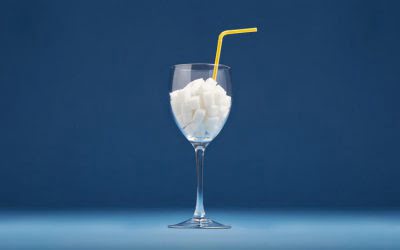Content
Sugar, whether in its natural form or as high fructose corn syrup, affects the brain by boosting levels of dopamine. Dopamine is the same chemical that’s released when an alcoholic drinks. Dopamine is sometimes called the reward chemical because it creates feelings of pleasure – the very feelings the brain wants to replicate.
Do you crave sugar when you quit drinking?
After you quit drinking, your brain and body are aware that they can experience a similar high or intoxication with sugar. In fact, according to a study on quitting alcohol and sugar cravings, the effects of sugar on neurological pathways in the brain are similar to those of other substances of abuse.
Feelings – You are so used to covering them up with alcohol that you may not recognize when you are hungry, emotional, or just tired. For one week, hone in on your feelings when you think you are hungry. If you have just eaten a meal, then drink some flavored water . You may just be dehydrated, which is common when you consume large amounts of alcohol.
The Common Link Between Sugar and Sobriety
Over time, a person can become so desensitized to the pleasure of sugar that they may increase their intake and even experience intense cravings for it. Sugar addiction is a real thing and works similarly to alcoholism. The sugar cravings after quitting alcohol are deeper than that, though. When a person uses alcohol, the brain’s pleasure center is triggered. It releases dopamine, a hormone that helps you to feel happy and good. It is this feeling that the brain craves when it is using alcohol.
If you are reading ingredient lists, remember that sugar has many names. Added sugar can be listed as high fructose corn syrup , sucrose, fructose, dehydrated cane juice, glucose, dextrose, syrup, cane sugar, raw sugar, and more. A tolerance to sugar can develop in much the same way your tolerance to alcohol increases when you drink regularly. The important thing is that when you first stop drinking, you go easy on yourself. At Ria, we offer weekly meetings with certified counselors to help members stay on track and build skills for long-term change.
Sober living
Several published studies claim that sugar is just as addictive as drugs like cocaine and heroin. These publications cite research that shows lab rats are just as and sometimes more likely to choose Oreos over injections of drugs like morphine when given the choice. This is due to the link between sugar and dopamine, the “pleasure and reward” chemical in the brain. Even if you’re craving a food that isn’t doing your health any favors, in early sobriety your body is just trying to find its equilibrium. By making a few adjustments to your diet and lifestyle, you can help gently restore balance, which will take the focus off sugar. Glutamine, an amino acid, may also help stop sugar cravings in some people .

If you dump sugar into your morning coffee or tea, gradually reduce that amount over a period of weeks. Over time, you will be able to significantly reduce — and even eliminate — the sugar in your diet. Our bodies convert alcohol to sugar, causing a spike in blood sugar levels. When alcoholics do alcoholics crave sugar quit drinking, it causes blood sugar levels to drop and so alcoholics start to crave sugar. A sugar addiction can develop much in the same way that a person develops an alcohol use disorder. They turn to sugary foods when they are stressed, angry, or in need of emotional comfort.
Recovery, Relapse, and Sugar
In addition, an addiction to sugar may play a role in the development and feeding of some cancers; high sugar consumption in breast cancer patients has been linked to lower survival rates after diagnosis. Remember what’s happening to your body—it’s having difficulty regulating your blood sugar levels, and your brain is having trouble making you feel happy, because your dopamine pathways have gone haywire. What you’re essentially doing in having sugar is manually taking control of these two mechanisms for a while, until your system is more balanced. For someone in recovery, a sugar addiction is hard to avoid because sugar hides in unexpected places. It’s legal, accessible, inexpensive, and in the vast majority of foods that Americans like to eat. Even things that don’t taste particularly sweet can be very high in added sugar.
- Our drug rehab in Philadelphia looks into why people get sugar cravings after quitting alcohol.
- This is similar to the way the brain reacts to the ingestion of substances like heroin and cocaine.
- Some types, including distilled spirits like whiskey, do not contain any carbohydrates at all.
- Even if it’s a can of corn or green beans, your body needs to start getting used to ingesting something other than sugar and alcohol.
- What this means is that sugar and drug addiction are similar in a lot of surprising ways.
- However, without being aware of their dependence on sugar, their cravings may be misinterpreted as drug addiction cravings.
This becomes a more serious concern when alcohol is taken out of the picture. Now that https://ecosoberhouse.com/ you’ve made the courageous decision to quit drinking, the future looks brighter.
